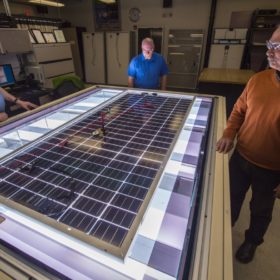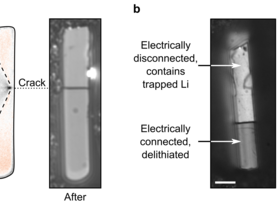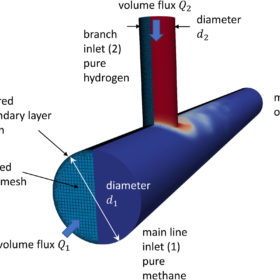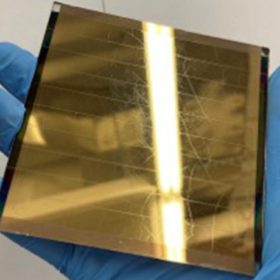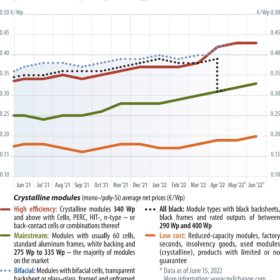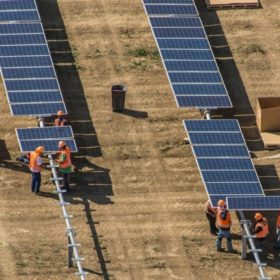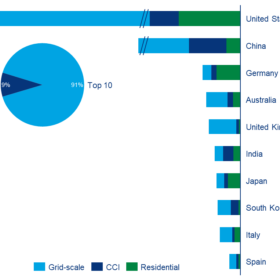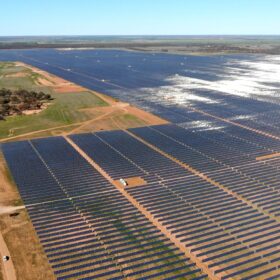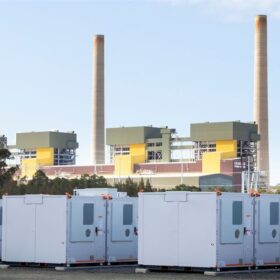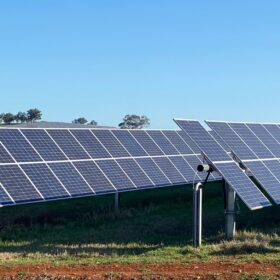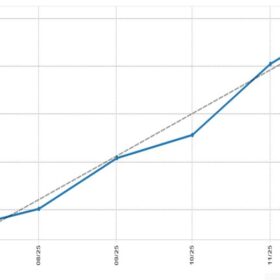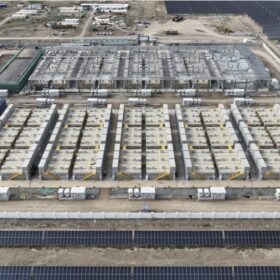Results of long-term study of module degradation released
In a study that began in 2016, scientists in the United States purchased 834 PV modules, representing seven manufacturers and 13 module types, and installed them in various climate conditions to observe their performance over time. The results show that, while plenty of opportunities still exist to extend module lifetimes and reduce performance loss in the field, reductions in the manufacturing cost of PV have not come with an increase in their degradation rate.
Optical microscopy technique to study prevention of battery failure
Researchers at the University of Cambridge have examined one of the fastest-charging anode materials by using a low-cost, lab-based optical microscopy technique. Their findings showed that particle fracture, which can reduce the storage capacity of a battery, is more common with higher rates of delithiation and in longer particles.
Record solar investment keeping Chinese economy afloat
Investments in renewables are hitting new highs in China, as recurrent Covid-19 outbreaks and a crisis-stricken housing market threaten the world’s second-biggest economy, according to BloombergNEF.
Traditional hydrogen blending could damage gas pipelines, say researchers
UK researchers have revealed that gaseous hydrogen could cause problems in natural gas pipelines, while electrolyser manufacturer Nel has announced plans to build a second production line in Norway.
Growing consensus on 100% renewables
An international group of researchers from 15 universities has said that there is growing consensus among scientists that an energy system based on 100% renewables could be achieved cost effectively by 2050.
Light-scattering structures to boost solar performance
An international team of scientists developed a nanoparticle structure which, when added to a solar cell, was shown to scatter light and potentially reflect it many times within the cell, contributing to a noticeable jump in current.
Weekend read: Chaos with no end in sight
We in the solar industry are used to our share of craziness. For us, business as usual is more the exception than the rule. We are used to coping with all sorts of imponderables – chaos as usual. Companies that have mastered this from years of training will probably be able to navigate their businesses through these troubled times. Martin Schachinger of pvXchange finds that it has been a long time since the PV market has been as crazy as it is now. Prices are rising steadily across the board, but not for solar panels.
World to install 250 GW of solar this year says Bloomberg analyst
The latest modelling from Bloomberg senior clean energy analyst Rob Barnett indicates a 30% increase in global PV deployment this year, and double-digit growth through 2025.
‘Game changing’ electrolysis technology from NSW closes $42m funding round oversubscribed
Australian hydrogen tech company Hysata has raised over $40 million in funding, attracting backing from major institutional players including CEFC, Hostplus and Bluescope. Hysata is seeking to commercialise a breakthrough made at the University of Wollongong which CEO Paul Barrett describes as “brand new category of electrolyser” with 95% system efficiency.
Australia ranks 4th in ‘staggering’ global storage markets
Wood Mackenzie places Australia fourth on its list of the globe’s top 10 storage markets, coming in just behind Germany, with the US and China unsurprisingly topping the list. The analyst expects the world’s cumulative storage deployments to reach 500 GW by 2031, according to its Global Energy Storage Outlook released today.
